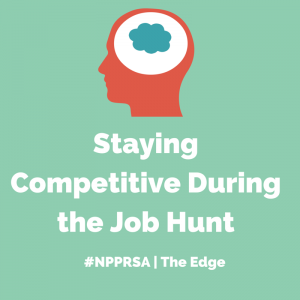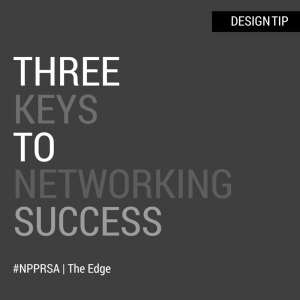Beginning as a new PR pro is exciting, but it can also be unnerving. Suddenly, you are no longer a student or intern – you are now taking on more significant roles within projects. As a new pro, you may interact with or even work alongside managers, directors, vice presidents and possibly even C-level executives. Being the newest professional on a team may challenge your confidence, but don’t let self-doubt undermine your skills and abilities. Here are five things you can do to help build your confidence:
1. Ask Questions
You’ve probably heard people say “knowledge is power,” and in many cases, that’s true. It’s natural to want to appear knowledgeable in the workplace, but having incorrect or incomplete information is far more costly than simply asking for clarification. Asking questions show that you are engaged and focused on accuracy. On top of that, having accurate information and a firm grip on what you are working on will make you more comfortable and confident.
2. Be Teachable
Being teachable is an incredibly important attribute for new professionals. An important part of being teachable is being open to feedback from others. As you may see over time, many seasoned professionals enjoy helping those who are newer to the field. Be humble and listen to those who are willing to share their knowledge and wisdom. Learning this way will not only help you feel more confident, but it will also help you build relationships with the pros who want to help you learn.
3. Remember Your Accomplishments
When you are working on a challenging project, or things just aren’t going your way, it can be easy to lose sight of all the things you have accomplished. It can be helpful to just take some time and reflect upon where you are and where you began. Think back even just a few years ago – what have you accomplished in that timeframe? Now think about where you are and where you could be a few years into the future. Remembering your accomplishments can serve as a reminder of the great things you are capable of doing and help build your confidence.
4. Make a Plan
When it comes to confidence, knowing where you want to go will help. You don’t have to have your entire life figured out today, but perhaps you plan on earning a Master’s degree by the time you’re 28, or you’re thinking about completing your Accreditation in Public Relations (APR) through PRSA within the next three years. Having a plan will help you feel more confident about your future, which can translate to increased confidence in the workplace.
5. Learn from Mistakes
Mistakes – we all make them. Some are larger than others, but all mistakes have one thing in common: we can learn from them. Understanding what went wrong and why can help prevent the same mistake from happening twice. The most important thing about learning from mistakes is to not beat yourself up. Shake it off and learn from them – tomorrow is a new day to shine.
Jeff Adkins is a public relations associate for Henry Ford Health System in Detroit, Michigan. An active member of PRSA Detroit, Jeff enjoys connecting with fellow PR pros and seeking out new professional experiences. He obtained his Bachelor’s in Public Relations in 2014 from Wayne State University (WSU), where he was a member of the WSU PRSSA executive board and a peer mentor for students entering the PR program. In his free time, Jeff enjoys kayaking and staying active outside. Feel free to connect with him on Twitter and LinkedIn.

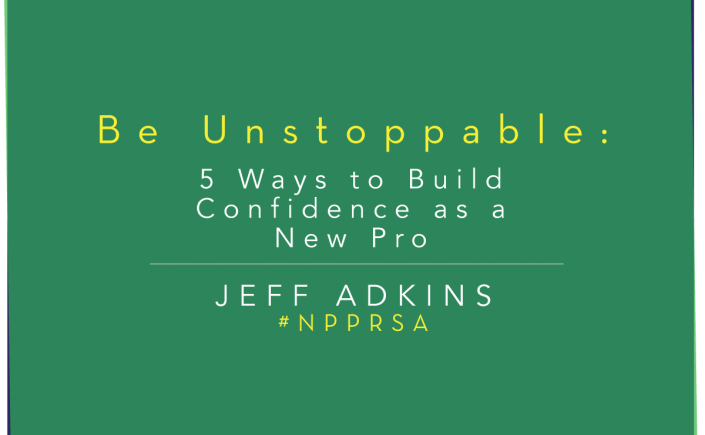
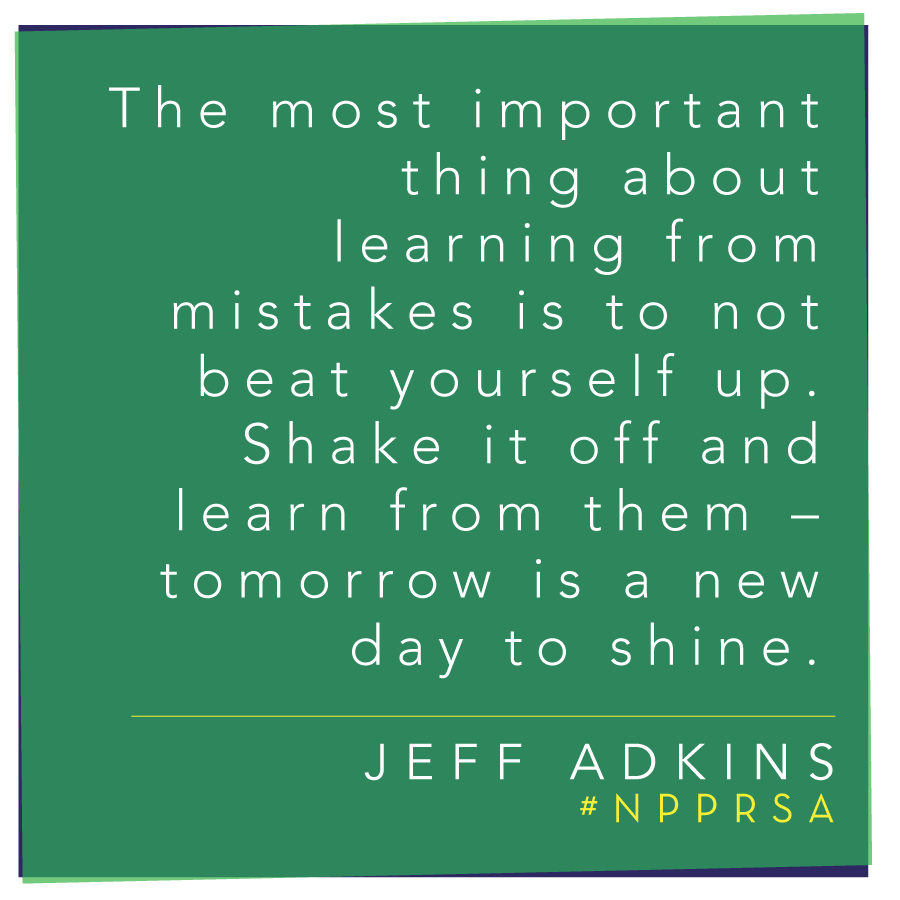
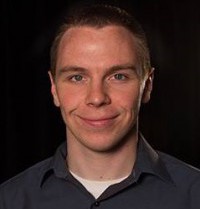

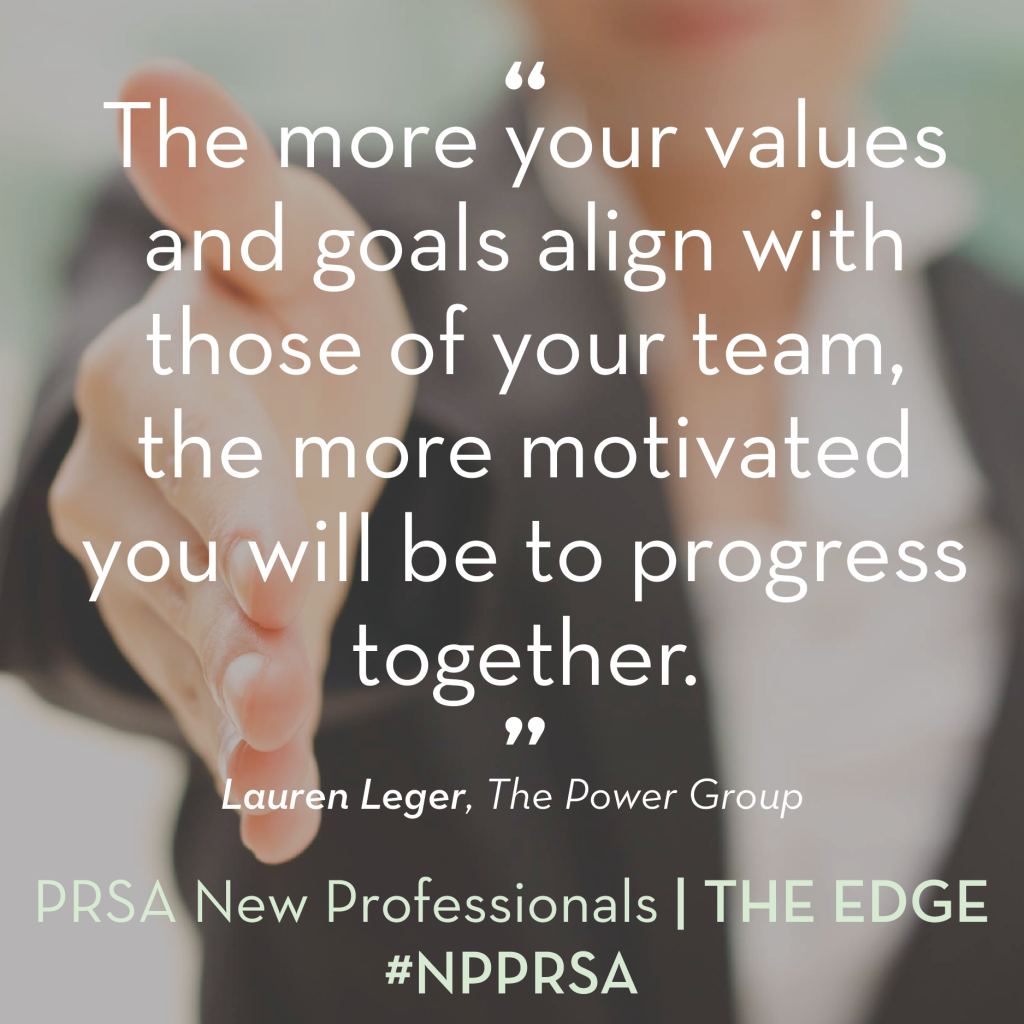 you will be to progress together. Carefully notice those who speak with you throughout the interview process. What kinds of questions are they asking? How do they treat you? What’s their body language? All of these things can provide insight into their values and work style. If you don’t feel like it’s a fit, it’s probably not, and you’ll likely run into roadblocks in the job as a result. Go with your gut impression of people and be sure to consider how it will affect your day to day at work. If you don’t consider values in the job search, you may find yourself working with people who are not likeminded, facing an uphill battle every day at work – not fun!
you will be to progress together. Carefully notice those who speak with you throughout the interview process. What kinds of questions are they asking? How do they treat you? What’s their body language? All of these things can provide insight into their values and work style. If you don’t feel like it’s a fit, it’s probably not, and you’ll likely run into roadblocks in the job as a result. Go with your gut impression of people and be sure to consider how it will affect your day to day at work. If you don’t consider values in the job search, you may find yourself working with people who are not likeminded, facing an uphill battle every day at work – not fun!
